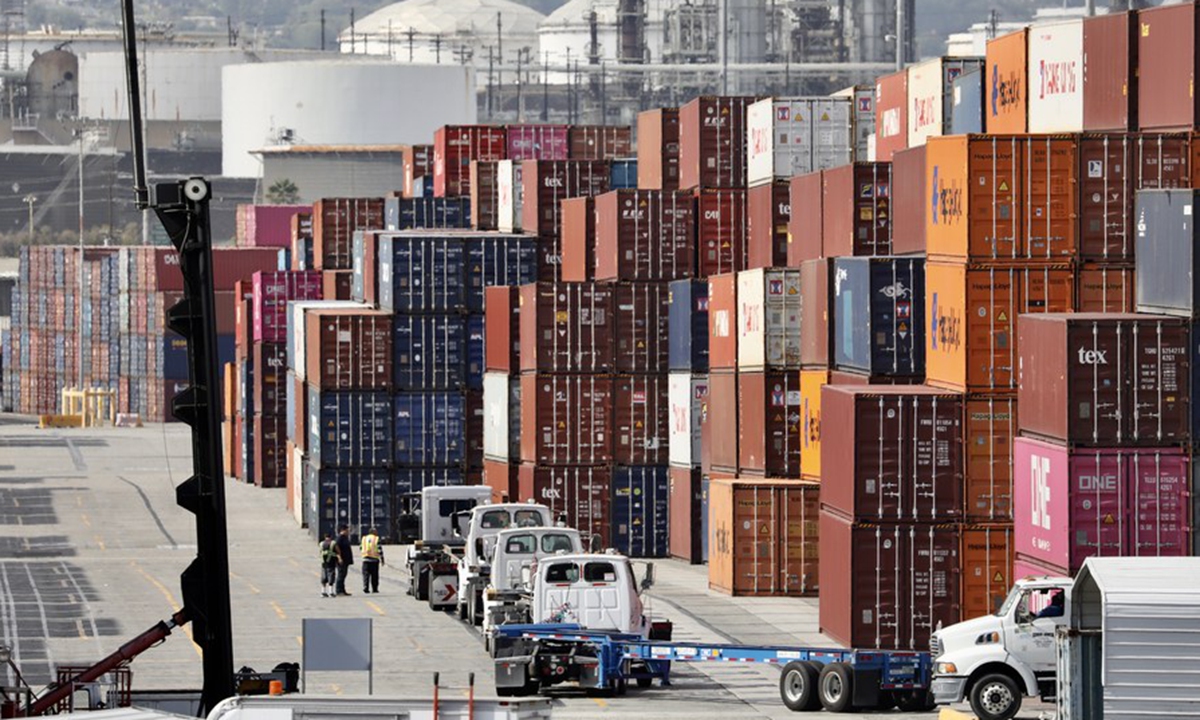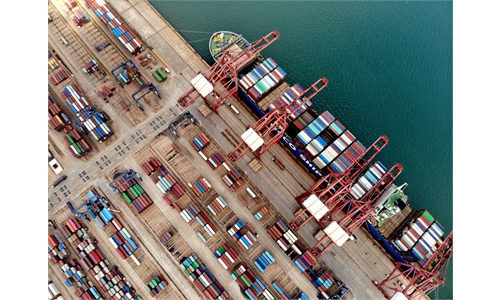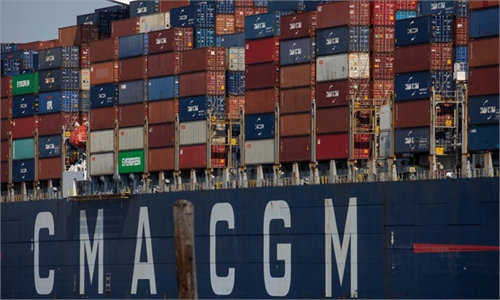
Trucks wait to load containers at the port of Los Angeles, California, the US, on Oct. 22, 2021. Photo: Xinhua
It is no secret that the US has become increasingly paranoid about anything related to China. The latest case in point is China's digitalization efforts in the global shipping industry.
In an article on Tuesday, the Wall Street Journal described how China's access to logistics information has sparked concerns in Washington that Beijing could gain potential intelligence and commercial advantage. Such a claim only proves the US and its media outlets have hegemonic mentality of keeping global shipping sector under its control.
Specifically, Logink, a major Chinese cargo-data system, "could give the data holder a treasure trove of intelligence of national security and economic interest," the report said, citing Michael Wessel, a commissioner on the US-China Economic and Security Review Commission at the US Congress.
Simply put, the article wants to convey the message that China's digitalization advantage in integrating public shipping data could serve the interests of Chinese companies to the detriment of others. But its baseless claim actually highlights the US-style hegemonic mentality of deeming anything out of its own control as risky.
With ports clogged globally and a supply chain crisis plaguing many industries, shipping data has indeed become crucial to understanding and responding to the rapidly evolving market environment. China is the world's largest trading country in goods, and it is only natural that the country has a great deal of cargo flow data. There is nothing illegal or sinister about that, as the article intended portray.
During the COVID-19 pandemic, China's shipping industry has made a remarkable contribution to stabilizing global industrial chains and supply chains as well as boosting global economic recovery. In this sense, China's ability to make breakthroughs in the traditional shipping industry through greater use of innovative technologies will only lead to more positive changes in the global shipping industry and further facilitate cooperation in the global supply chains.
It should be noted that the Logink system is built based on publicly available data and is not the only cargo data platform to do so. If the US believes such a digital platform can generate a special strategic advantage, it is free to build its own cargo data system rather than playing up unfounded risks to undermine its rivals and, by extension, the global shipping industry.
What's more ironic is that US media outlets have complained about failing to illegally obtain China's shipping data, even as they criticize China's access to public data. Last month, CNN claimed that the number of ships sending Automatic Identification System (AIS) signals in Chinese waters has plunged by nearly 90 percent, which has become another headache for the global supply chain. But China's AIS signals are still available to foreign ships in Chinese water, and only foreign intelligence institutions are no longer able to obtain AIS signals by setting up fake base stations to illegally collect China's shipping data.
The US needs to adjust its hegemonic mentality when it comes to the global shipping industry. The more engaged the US is in ensuring shipping route safety, the more unnecessary risks it places on global shipping.
Digitalized optimization is a development priority for the global shipping sector. However, at a time when the American shipping industry is in great trouble, especially when it comes to port handling and transportation, it is totally inappropriate for the US to smear China's digitalized efforts to integrate shipping resources more efficiently.



